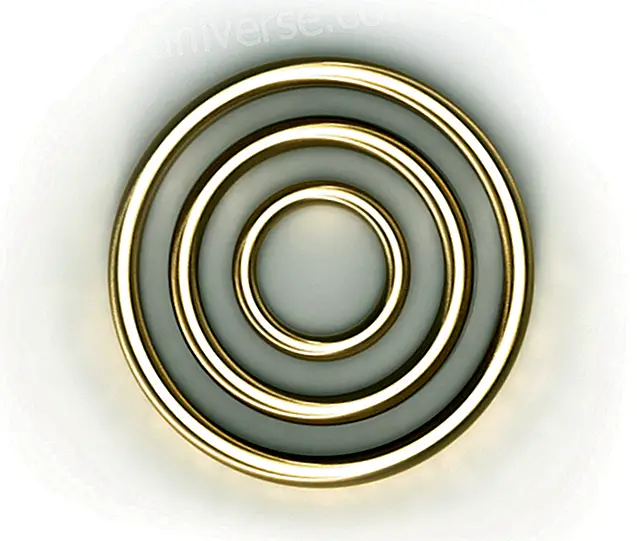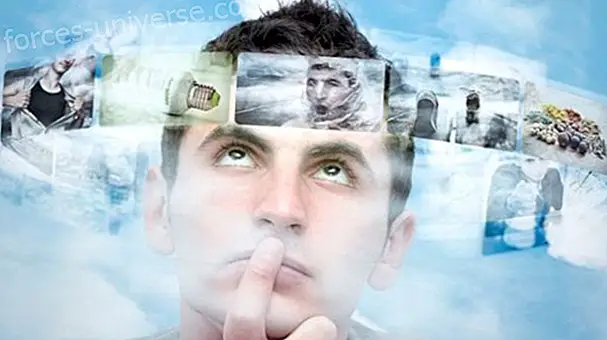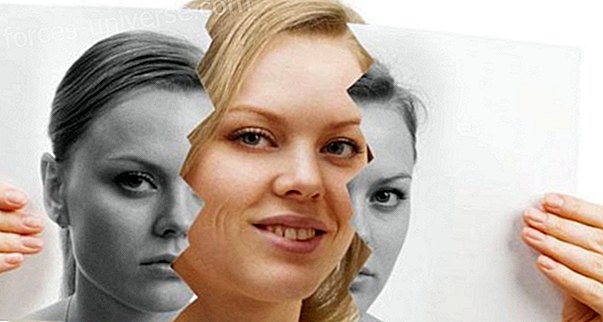
The internal revolution [04/14/2008]
CHANGE in society is of secondary importance; that will happen naturally and inevitably when, as human beings, we make that change in ourselves. »
We were considering the extraordinary complexity of daily life, the struggle, the conflict, the misery and the confusion in which we find ourselves. Until we truly understand the nature and structure of this complexity, as we are imprisoned in that trap, there will be no freedom: neither the freedom to inquire, nor the freedom that comes to us with great joy and in which the total surrender of oneself. Such freedom is not possible if there is any form of fear, either superficially or in the hidden depths of our mind. We already point out the relationship between fear, pleasure and desire, and that to understand fear we must also understand the nature of pleasure.
This morning we will talk about the center, from which our life and our activities come, and also if it is possible to change that center. Because obviously a change, a transformation, an internal revolution is necessary. To carry out this transformation, we have to carefully examine what our life is, without escaping it, without being distracted by theoretical beliefs and assertions, but by observing very well what our life really is, and seeing if it is possible to transform it completely. With that transformation we may affect the nature and culture of society. There has to be a change in society, because the evil and social injustice are so great, the farce of religious worship is so shameful ... But the change in society is of secondary importance, that will happen naturally and inevitably, when as human beings, who relate to each other, let's make that change in ourselves.
Throughout this morning we will consider three essential things. What is living our daily life? What is compassion, love? And the third, what is death? All three are closely related; By understanding one we will understand the other two. As we have seen, we cannot take fragments of life, choose a part of life that we consider valuable or that attracts us, or that our inclinations claim vehemently. Either we take the whole of life - in which death, love and living are involved - or we only take a fragment of it that may seem satisfactory, but will inevitably lead to greater confusion. We have, then, to take it in its entirety, and when considering what living is, we must bear in mind that we are discussing something that is total, healthy and sacred.
We can observe that in the relations of daily life there is conflict, suffering and pain; we depend on another constantly, and in this dependence there is self-pity and comparison. We call that living. Let me repeat that we do not deal with theories, that we do not disseminate any ideology, because it is obvious that ideologies, whatever they are, have no value; on the contrary, they cause greater confusion and greater conflict. We are not recreating ourselves with opinions, evaluations, or censures. We are interested only in observing what really happens to see if that can be transformed.
We can clearly see how contradictory and confusing our daily lives are; as we live it now, it makes absolutely no sense. It is possible to invent a meaning; intellectuals really make a sense of life, and people accept it. But that sense can be a very ingenious philosophy, which is created from nothing. While if we are only interested in “what is”, without inventing any meaning, or without escaping, and without falling into theories or ideologies, if we are tremendously alert, then the mind is able to face “what is”. Theories and beliefs do not change our life; man has sustained them for thousands of years and has not changed; perhaps they have given a superficial polish; It may be a little less wild, but it is still brutal, violent, capricious, unable to maintain seriousness. We live a life of great suffering from the moment we are born until we die. That is a fact. And no speculative theory about that fact can affect it. What really affects "what is" is the ability, energy, intensity, passion with which we look at that fact. And we cannot have passion and intensity if the mind is pursuing some illusion, some speculative ideology. We are examining something rather complex for which we need all our energy, all our attention, not only while we are in this room, but also through life, if we are something serious. What interests us is to change “what is”, the suffering, the conflict, the violence, the dependence of another, not the dependence of the seller, the doctor, or the mailman, but the dependence in our relationship with another, both psychologically and psychosomatically. That dependence on another always begets fear: as long as I depend on you for my support, emotionally, psychologically or spiritually, I am your slave and, therefore, I am afraid. That is a fact. Most human beings depend on another, and in that dependence is self-pity, which arises from comparison. So where there is psychological dependence on another of the wife, or the husband, there will have to be not only fear and pleasure, but also the suffering that These generate. I hope you are observing this in yourselves, and not merely listening to the speaker.
You know that there are two ways of listening: listen lightly, how a series of ideas is heard, agreeing or disagreeing with them; and there is another way to do it, which consists not only in listening to the words and the meaning of these, but also what is really happening in yourselves. If we listen like this, then what the speaker says is related to what you are hearing within yourself. Then they are not so listening only to me, which does not have the least importance, but the whole content of their being. And if you are listening like that with intensity, at the same time and on the same level, then you and I participate together in what is really happening. Then you will have the passion that will transform that que es . But if you don't listen that way, with all your mind, with all your heart, then such a meeting is totally meaningless.
By understanding what it is, the terrible life that we really lead, we realize that we live in isolation, because even if we have a wife and children, there is a self-insulating process that is operating within oneself. Even if they live together in the same house, the wife, the friend or the friend, each one is really isolated, with their own ambitions and fears and their own suffering. Living that way is called relationship. I repeat, this is a fact; He has an image of her, and she has an image of him, and each one has his own image of himself. The relationship that occurs is between those images, but that is not a true relationship. We have, then, to find out how these images are elaborated, how they are created, why they would exist, and what it would mean to live without those images . I do not know if you have ever considered whether a life is possible in which there are no images, beliefs, and what it would mean to live without them. Let's find out.
We have many experiences all the time and we can be, or not be aware of them. Each experience leaves a mark; those tracks are strengthened day after day and become the image. As soon as someone insults us, we have already formed an image of the other. Or if someone flaunts us, an image is formed again. Inevitably, each reaction generates an image. Is it possible that, once created, that image will cease?
For an image to cease, we must first find out how it forms; and if we do not respond adequately to any challenge, it is inevitable that the residue leaves an image. If you call me a fool, you immediately become my enemy, or I don't like you. When you call me dumb, I have to be intensely alert at that moment, without choosing, without condemning, just listening to what you say. If I do not react emotionally to your assertion, then no image is formed.
We have to be attentive to the reaction, without giving it a chance to take root, because as soon as the reaction takes root, it has already formed an image. Now I ask you: can you do it? To do so, he needs to pay attention - not simply digressing as in dreams for life -, pay attention at the moment of the challenge, with his whole being, listening with his heart and with his mind, so that he sees clearly what is being saying: either an insult, or an adulation, or an opinion about you. Then you will see that there is no image. The image is always formed from what has happened in the past. If it is pleasant, we keep it. If it is painful, we want to get rid of it. So that desire arises; one thing we want to retain it, and the other we want to reject it; and from desire the conflict is born. If we realize all this, paying attention without any choice, simply by observing, then we can discover the truth for ourselves, and we will not live according to a psychologist or a priest, or a doctor. If we want to discover the truth we have to be completely free of all that, and be alone. To be alone is to turn our backs on society. If you have looked closely, you will see that a part of your brain, which has evolved over many thousands of years, is the past, and that the past is experience, memory. In that past there is security. I hope you are observing all this in yourselves. The past always responds immediately, and delaying the response of the past when we face a challenge, so that there is an interval between the challenge and the response, is what puts an end to the image. If we do not do this, we will always be living in the past. We are the past, and in the past there is no freedom. That, then, is our life, a constant battle, in which the past, modified by the present, moves towards the future, which is still the movement of the past, although modified. As long as that movement exists, man can never be free, he will always be in conflict, in suffering, in confusion, in misfortune. Can the response of the past be delayed so that the immediate formation of an image does not occur?
We have to look at life as it is, look at the endless confusion and misery, and escape from that towards some religious superstition, or towards the worship of the State, or towards various forms of understanding. We have to look at how we escape to the neurosis, because a neurosis offers an extraordinary sense of security. The man who "believes" is neurotic; The man who loves an image is neurotic. In these forms of neurosis there is great security. But thus we do not reach any radical revolution in ourselves. To achieve it we have to observe without choice, without any distortion of desire, or pleasure or pain, just really observe what we are, without leaks. But let's not name what we see, just observe. Then we will have the passion, the energy to observe, and in that observation a tremendous change is made.
What is love? We talk a lot about him: love for God, love for humanity, love for the country, love for the family. But strangely, attached to that love goes hate. You love your God and hate the God of another, you love your homeland, your family, but you are against the family of another, against another nation. And throughout the world, love is more or less associated with sex. We are not condemning, nor judging, nor evaluating; We only observe what is really happening, and if you know how to observe, doing so infuses you with tremendous energy.
What is love and what is compassion? The word "compassion" means passion for everyone, being interested in everything, even the animals we kill to eat. First let's look at what it really is - not what it should be - by seeing what it really is in daily life. Do we know what love means, or do we only know pleasure and desire, which we call love? Of course, with pleasure, with desire, there is tenderness, care, affection, etc. Is love, then, pleasure, desire? Apparently it is for most of us. One depends on his wife, one loves his wife, however, if she looks at someone else, one feels angry, frustrated, unhappy; and ultimately there is the divorce court. That is what we call love! But if his wife dies, another is sought, because dependence is very large. One never asks why it depends on another. (I'm talking about psychological dependence.) If you look at it, you'll see deep inside, how alone it is, how frustrated and unhappy it is. He doesn't know what to do with that loneliness, that isolation, which is a form of suicide. And therefore, not knowing what to do, depends on someone or something. That dependence provides great comfort and company, but when that company is slightly altered, one becomes jealous, furious. Would you send your children to war if they loved you? Would you give them the kind of education they now receive, educating them only technically, to help them get a job, to pass some exams and ignore the rest of the whole of this wonderful life? They take care of them with such care until they are five years old and then they are thrown to the wolves. That is what we call love. Is there love when there is violence, hate, antagonism? What will we do then? Within this violence and hate is our virtue and our morality; when we reject that, then we will be virtuous. That means seeing all the implications of what love is, fending for ourselves and being able to love. You hear this because you know it's the truth. If they do not live it, the truth becomes poison; if they hear something true and abandon it, that brings another contradiction in life and, therefore, greater misery. Listen, then, with your heart and with all your mind; Or don't hear anything. But since they are here, I hope you are listening.
Love is not the opposite of anything else. It is not the opposite of hate or violence. Although we do not depend on someone and live very virtuously - collaborating in social assistance, manifesting ourselves in the streets - if we do not have love, all that is completely worthless. If we love, then we can do as we please. The man he loves does not make mistakes, and if he makes any, he corrects it immediately. A man who loves does not feel jealousy or regrets, for him there is no forgiveness, because at no time does something arise that is a reason for forgiveness. All this requires deep investigation, great care and attention. But we are caught in the trap of modern society; We have created that trap ourselves, and if someone points out that fact, we do not take it into account. So wars and hate continue.
I would like to know what you think about death; not theoretically, but what it really means to you; not as something that will inevitably come, either by accident, due to illness or old age. That happens to everyone: in old age we have the pretensions of acting as if we were young. All theories, all hopes mean that we are desperate; and in our despair we look for something that gives us some hope. Have you observed your despair to see why it exists? It exists because one compares with another, because one wishes to reach a goal, become something, be, realize.
One of the strange things in life is that we are conditioned by the verb "to be." Because in him there is the past, the present and the future. All religious conditioning is based on that verb "to be"; heaven and hell have their foundation, all beliefs, all saviors, all excesses. Can a human being live without that verb that means to live and have no past or future? It does not mean "living in the present"; You do not know what it means to live in the present. To live completely in the present we have to know what the nature and structure of the past is: that it is oneself. We have to know ourselves in such a complete way that there is no hidden corner; that "ourselves" is the past, and is nourished by the verb "to be" which is to become, to realize, to remember. Let's find out what it means to live without that verb in the inner psychological world.
What does death mean? Why do we all fear her so much? In Asia people believe in reincarnation; in that they find great hope - I don't know why - and people continue talking and writing about it. What is going to be embodied? All the past, all the misery, all the confusion, everything we are now? We believe that "the self" (the word "soul" is used here) is permanent. Is there something in life that is permanent? We would like to have something permanent, and for that reason we place death at a distance and separate from us, we never look at it, because it frightens us. Then we have "the time", the time between what is and what will inevitably happen, Either we project our lives to tomorrow and continue as we are now, waiting for some kind of resurrection to occur, or else we die every day. We die every day for ourselves, for our misery, for our suffering; we shed that burden every day so that our mind is fresh, young and innocent. The word "innocence" means "unable to be hurt." Having a mind that cannot be hurt does not mean that it has developed a lot of resistance; On the contrary, such a mind is dying for everything it has known where there has been conflict, pleasure and pain. Only then is the mind innocent; That means he can love. It is not possible for us to love with memory; Love is not a thing of memory, of time.
So, love, death and living are not separate things, but a total unity, and in that unity is good sense. That sense cannot exist if there is hatred, anger, jealousy, and when there is dependence, which engenders fear. When there is good sense, life becomes sacred; there is great joy and we can do what we want; and what we do then is valid and virtuous.
We do not know all this; We only know our misery, and as we know nothing, we try to escape. If at least we stopped escaping so that we could really observe, avoiding moving even one iota of "what is", without naming it, condemning it or judging it, so that we could only observe it. To observe something requires interest, and having interest means having compassion. With such a splendid and complete life, you can then participate in something we will talk about tomorrow, that is, meditation. Without having established that basis, meditation is mere self hypnosis. Establishing that base means that we have understood this extraordinary life, so we have a mind without conflict and we lead a life in which there is compassion, beauty and, therefore, order. It is not about the order of a program, but the order that arises when we understand what disorder is: and our life is that. Our life is in disorder. The disorder is contradiction, the conflict of opposites. When we understand that disorder in ourselves, then from that understanding arises the order, the order that is precise, mathematical, in which there is no distortion. All this requires a meditative mind, a mind that is able to observe silently.
Beyond Violence, © KFT






